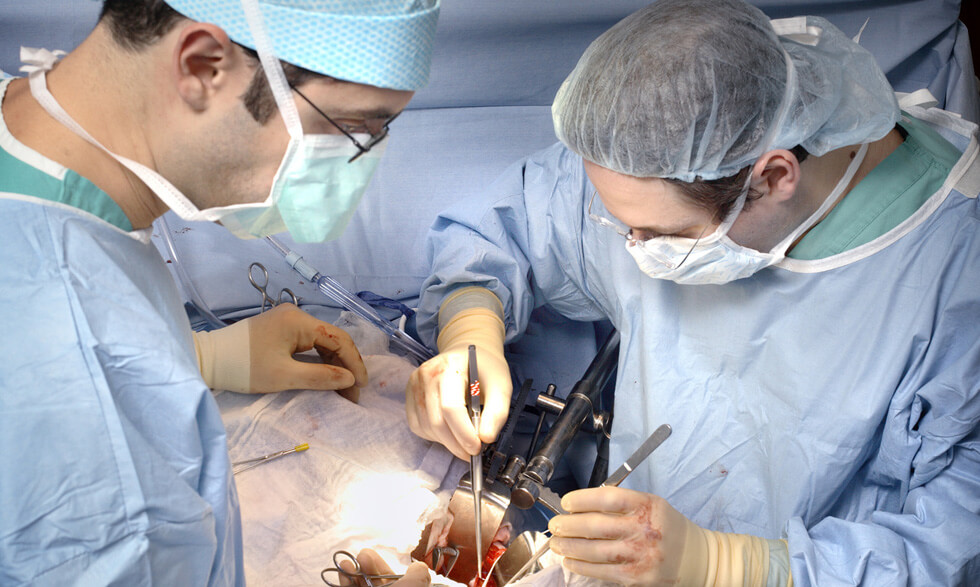Health Topics

Improving organ donation for all
Dr. Dorry Segev works with NIH to improve kidney transplant access across U.S.
Dorry Segev, M.D., Ph.D., is a leader in the field of organ transplantation. The Johns Hopkins University surgeon and research chair is working to improve transplant access and success for patients across the U.S.
Dr. Segev is currently working to address geographic disparities with kidney transplantation—making sure where you live doesn't impact your ability to get an organ. The research is supported by the National Institute of Diabetes and Digestive and Kidney Diseases (NIDDK).
Dr. Segev's team is also working with the National Institute on Aging and the National Institute of Allergy and Infectious Diseases to expand organ donation to different populations, such as older patients and those with HIV.
He spoke to NIH MedlinePlus magazine about some of his recent research.
Who is a good candidate for a kidney transplant?
Anyone with kidney failure is a potential candidate for a kidney transplant. If you have kidney failure and can tolerate an operation and medicines to suppress your immune system—to keep your body from rejecting the new kidney—you can have a kidney transplant.
Many people with kidney failure on dialysis don't know about transplantation and don't realize they could be a good candidate.
On average, if you have a kidney transplant, you will double your remaining life expectancy compared to staying on dialysis. We've even shown substantial survival benefit and improvement in quality of life in older transplant recipients. Today, we're doing 10 times as many transplants in people over 65 than we did a decade ago. The outcomes are getting better every year.
When should a patient think about kidney transplantation?
When someone is heading towards kidney failure, even at stage 4 or stage 5 kidney disease, the default pathway is dialysis. But this is actually not the best pathway. In fact, we know that if you get transplanted before you even start dialysis, you'll have much better outcomes.
It's important for people who are heading towards kidney failure to prepare for transplantation. Find out as much as you can. Try to find a living donor. Take all the steps leading up to the transplant so that when you need the transplant, you're ready.
Can you tell us about the kidney transplant waiting list?
If you can't find a living donor, you are put on a list of more than 100,000 people across the country. Organs are distributed to patients based on a number of factors, like how long you've been on the list, your age, blood type, and where you live.
Here's the problem. There are some areas that have a high supply of organs and a low demand, and some areas with a low supply and a very high demand. For example, a dense urban area like New York City has a high demand, but low supply. A more rural area might have a low demand for organ donation (because there are fewer people) but have a high supply since high-speed motor vehicle crashes are often a major source of organ donation.
That means that where you live may determine if you get an organ on the waiting list, unless you're able to travel to other parts of the country. That can be both expensive and physically challenging for patients.
Can you tell us about your NIH research on improving transplant access?
The research we're doing, funded by NIDDK, is trying to address these geographic disparity issues by changing how the organ distribution system works in the U.S.
You might look at it in simple terms as "redrawing the map." It uses the same science that people use to organize school and voting districts. It helps equalize the distribution of supply and demand for organs so that where someone lives doesn't prevent them from receiving an organ.
We hope to better equalize access and, as a result, reduce organ discard and save lives overall.
This goes hand in hand with the effort to improve donor rates in the U.S.
What advice do you have for people interested in donating a kidney?
The advice I would give people is to learn as much as they possibly can about the actual risks of donation.
The risk of dying from donating a kidney is 3 in 10,000. That's incredibly safe. And the worries about kidney failure down the road after donating a kidney are much lower than you would think.
In 15 years after you have donated a kidney, on average in the U.S., the risk of getting kidney failure is about 30 in 10,000.
We're also using NIDDK funding to research health and wellness outcomes for donors. We're looking for ways to better counsel people on donation and monitor their health post-surgery.
What are some common misconceptions?
One is "I'm too old to donate a kidney." We're seeing more people donate in their 60s and 70s; personally, I operated on an 81-year-old who donated a kidney. In fact, it's almost safer to donate in your 60s and 70s than in your 20s. In your 20s, we don't know what's going to happen to you medically for the rest of your life.
Another misconception is that you have to be a match to be a living donor.
We used to say if you have a compatible living donor you can have a transplant. Today we say if you have a living donor you can have a transplant. Our ability to get around those blood incompatibilities has changed dramatically in the last 15 years.
Through kidney exchange and what's called kidney desensitization, we are often able to work around the incompatibilities or address them head on.
Something else that's important to know is HIV shouldn't stop you from receiving or donating an organ. These days we give transplants to hundreds of people who have the disease and there is a huge survival benefit from transplantation in HIV.
It's also a misconception, even in the HIV community, that you can't be a donor if you have HIV. We wrote a bill back in 2013, signed by President Obama, that now allows us to use those organs for people who have HIV and are on the waiting list, which is really important.






